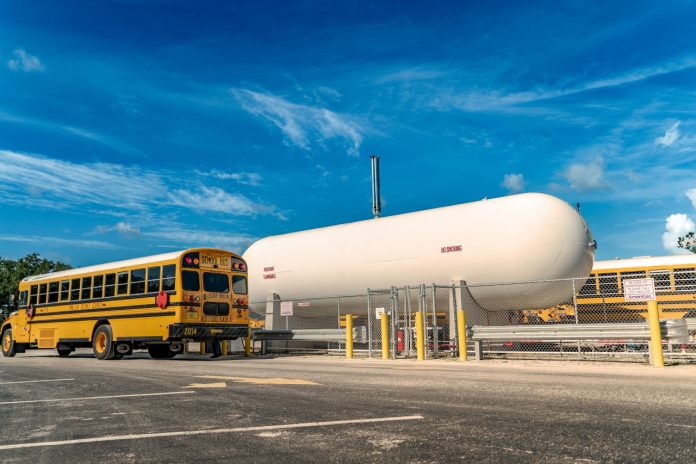WASHINGTON — A new $1.2 trillion law to improve America’s infrastructure creates an unprecedented opportunity for propane and other low-emission fuels to power on-road and off-road fleets that have historically operated on diesel and gasoline.
The Infrastructure Investment and Jobs Act includes over $9 billion in funding for refueling infrastructure and clean vehicles, including propane, which is identified in the Act as an emerging alternative fuel. Today, about 70,000 on-road vehicles, including 22,000 school buses, run on propane. Propane autogas reduces more emissions per dollar than any other fuel and is a cost-effective solution compared with electric vehicles.
“The inclusion of propane is a major win for communities across the country, as fleet owners will have multiple alternative fuel options for reducing emissions and transforming their fleets for the better,” said Tucker Perkins, president and CEO of the Propane Education & Research Council. “With propane, fleets can accelerate decarbonization quickly and affordably.”
Propane’s simple, affordable, ready-now equipment ensures energy equity by cutting carbon emissions without the trillions of dollars that will be required to modernize an aging electrical grid and retrofit millions of homes and businesses. The burden for those upgrades would inevitably fall on those who can least afford it. Propane produces 43 percent fewer greenhouse gas emissions versus electricity.
Propane-fueled vehicles and refueling infrastructure are eligible to compete for the following funding opportunities under the new law: $2.5 billion in grants for charging and refueling infrastructure. $2.5 billion in funding for the Clean School Bus Program. $1.6 billion in grants for buses and bus facilities. $2.5 billion in grants for emissions reduction at port facilities.
Propane offers significant benefits in the following product categories:
School buses: Propane buses reduce NOx by 96 percent and CO2 by 13 percent compared with diesel buses and provide greater comfort to students since they make less noise, smell better and warm up faster in cold weather. They are also one fourth the cost of electric school buses, meaning school districts can afford to replace more of their fleet and achieve carbon reduction goals faster. The propane refueling infrastructure is also affordable and scalable.
Propane dispensers: Propane refueling infrastructure is affordable, scalable, and readily available for the nation’s alternative fuel corridors. Propane-fueled generators even provide for EV recharging. Funding is expected to become available in January 2022. Learn more at Propane.com/School-Transportation.
About PERC: The Propane Education & Research Council is a nonprofit that provides leading propane safety and training programs and invests in research and development of new propane-powered technologies. PERC is operated and funded by the propane industry. For more information, visit Propane.com.
















